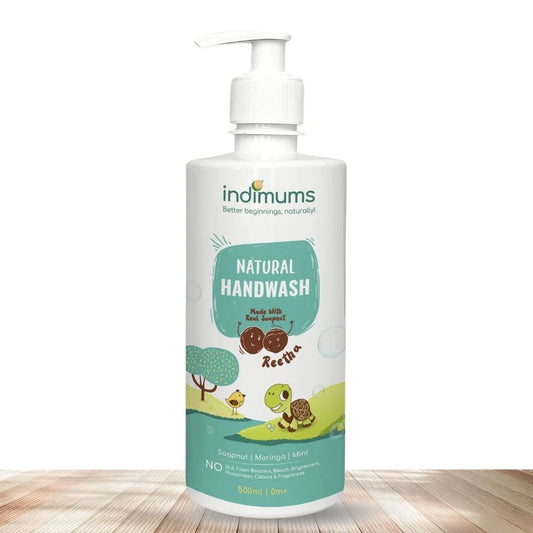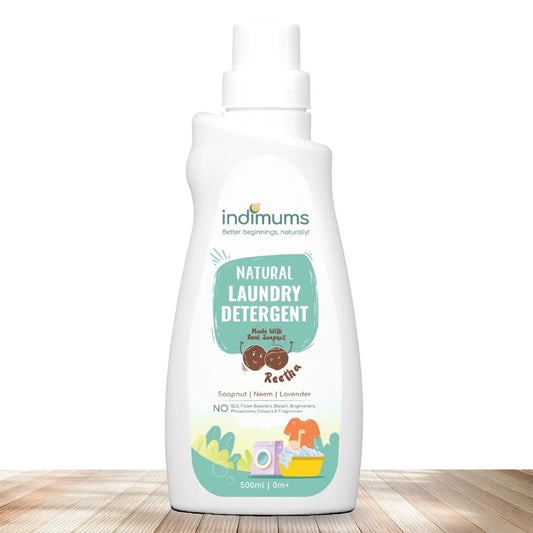Welcoming a new baby into the world is a joyous occasion, but it can also bring about a host of concerns for new parents. One common concern that many parents encounter is baby acne. Baby acne is a common skin condition that can appear on your newborn's delicate skin. While it can be unsettling to see little pimples on your baby's face, it's usually harmless and temporary. In this blog post, we will explore the causes of baby acne and share some remedies and tips for managing it effectively.
What is Baby Acne?
Baby acne, also known as neonatal acne, is a skin condition that typically appears in newborns. It is characterized by red or white bumps and pustules on a baby's face, primarily on the cheeks, nose, and forehead. Baby acne can sometimes resemble adult acne, but it is unrelated to it and tends to be milder.
Causes of Baby Acne
Maternal Hormones: One of the primary causes of baby acne is the transmission of maternal hormones to the baby during pregnancy. These hormones can stimulate the baby's oil glands, leading to the development of acne.
Irritation: Baby acne can also be triggered by skin irritation. This irritation may result from rough fabrics, excessive moisture, or even saliva on the baby's skin.
Remedies and Tips for Managing Baby Acne
Gentle Cleansing: To help manage baby acne, it's important to keep your baby's face clean. You can use a mild, fragrance-free baby soap, or if you have a baby body wash made from natural ingredients like "Soapnut", that's a great option too. Gently cleanse their face with warm water, being careful not to scrub or use harsh soaps that can further irritate the skin. The use of natural ingredients like "Soapnut" can be a gentle and skin-friendly choice for keeping your baby's skin clean and free from irritants.
Avoid Over-cleansing: While gentle cleansing is important, avoid over-cleansing your baby's face. Excessive washing can strip the skin of its natural oils, making the condition worse.
Pat Dry: After washing your baby's face, pat it dry with a soft, clean towel. Avoid rubbing, as this can cause irritation.
Use Fragrance-free Products: Opt for baby skincare products that are fragrance-free and specifically designed for sensitive skin. Fragrances and chemicals can exacerbate baby acne.
Breast Milk: Some parents have found that applying a small amount of breast milk to the affected areas can help soothe and reduce baby acne. Breast milk has natural antibacterial properties that may be beneficial.
Avoid Lotions and Creams: Refrain from using lotions or creams on your baby's face unless recommended by a pediatrician. These products can clog pores and worsen the condition.
Keep the Affected Area Dry: Ensuring that your baby's face remains dry can be beneficial. Use soft, breathable fabrics for baby clothes and bedding.
Time and Patience: Most importantly, remember that baby acne is a temporary condition that will resolve on its own over time. In the majority of cases, baby acne clears up by itself within a few weeks to a few months.
When to Consult a Pediatrician
In most cases, baby acne doesn't require medical treatment, but there are certain situations in which you should consult your pediatrician:
If the acne persists for more than a few months.
If the acne appears to be getting worse.
If you notice any signs of infection, such as pus-filled sores.
Your pediatrician can provide guidance and, if necessary, recommend appropriate treatments.
Final words
Baby acne can be a source of concern for new parents, but it's essential to remember that it's a common and usually harmless condition. By following the gentle cleansing and care tips mentioned in this article, you can help manage your baby's acne and provide the necessary comfort and care during this period. While it may be unsettling to see those little pimples on your baby's face, remember that with time and patience, they will likely fade away, leaving your little one with smooth, beautiful skin.




